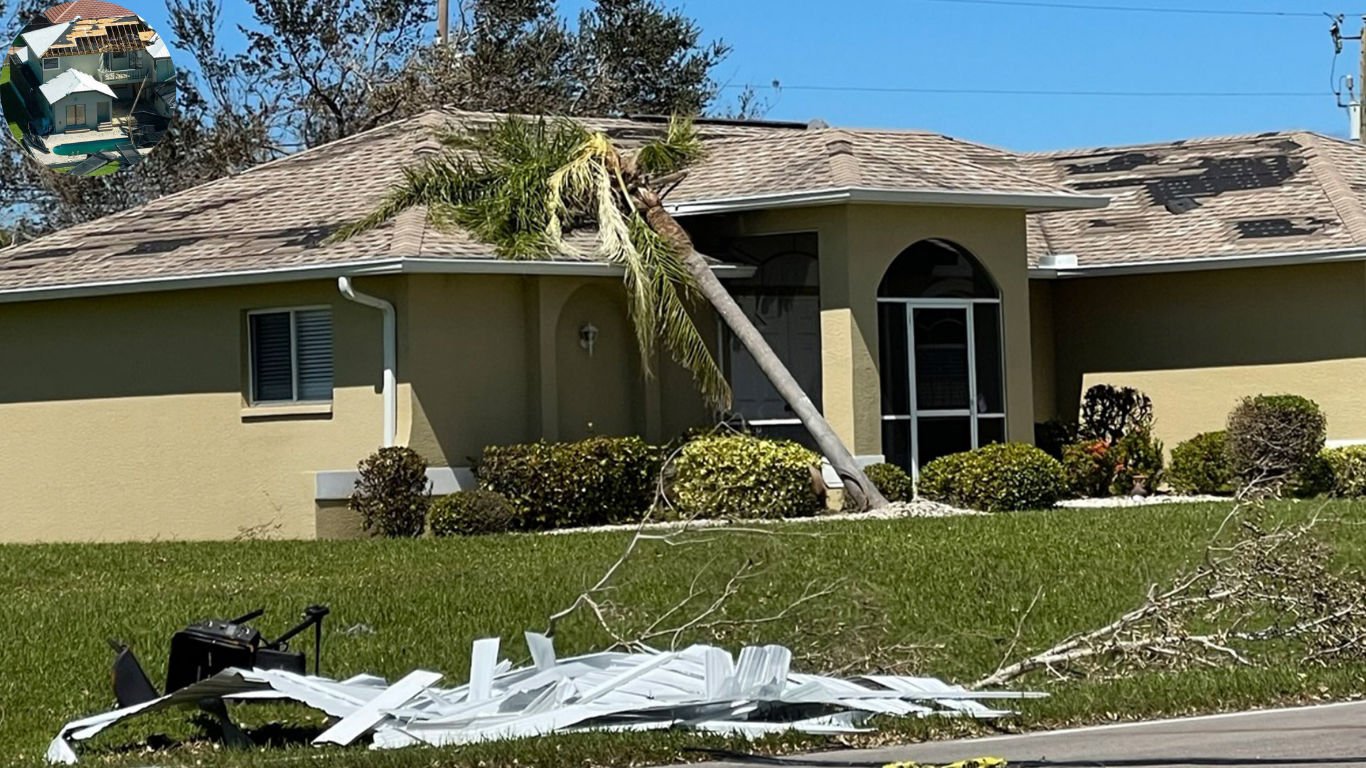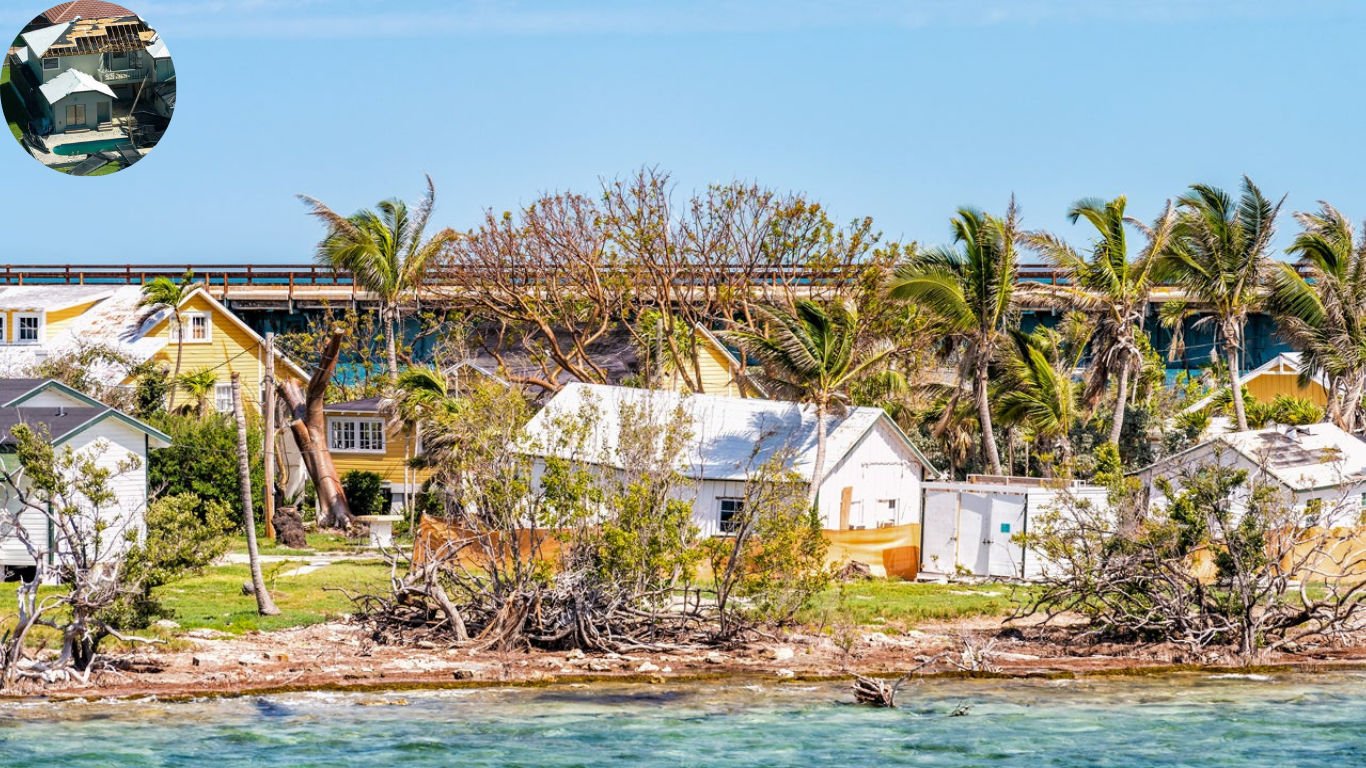Florida homeowners face unique risks from hurricanes, which can cause extensive damage through high winds, heavy rainfall, flooding, and storm surges. Understanding whether your home insurance covers hurricane damage is crucial for protecting your property and finances. In Florida, standard homeowners insurance policies typically include coverage for wind damage caused by hurricanes, such as damage to roofs, windows, and other structures. However, flood damage resulting from hurricanes is generally not covered and requires separate flood insurance. Additionally, many Florida policies have a specific hurricane deductible, often a percentage of the home’s insured value, which applies to hurricane-related claims. Knowing the scope and limitations of your coverage can help you prepare for and recover from hurricane impacts effectively.
Understanding Home Insurance Coverage
Home insurance is designed to provide financial protection against a range of risks, including theft, fire, and natural disasters. In Florida, where hurricanes are a common concern, understanding your policy’s coverage specifics is crucial.
The structure of your home and your personal belongings are typically covered by standard home insurance policies.However, not all policies address hurricane-related damage equally.
It’s important to note that many homeowners assume windstorm damage falls under their general coverage. This assumption can lead to surprises when filing claims after storms.
Reviewing the fine print of your policy will clarify what is included or excluded regarding hurricane events. Additionally, consider factors like deductibles and limits on payouts for specific types of damage to ensure you’re adequately protected during storm season.
The Impact of Hurricanes on Florida Homeowners
Hurricanes are a formidable threat to Florida homeowners. It is possible for these storms to unleash devastating winds and torrential rains, causing extensive property damage as a result.
In coastal areas, the risks increase significantly. Flooding can occur rapidly, overwhelming homes that were once considered safe from such events. Many residents find themselves caught off guard by sudden storm surges.
The emotional toll is equally significant. Families often face displacement as they navigate repairs or temporary housing solutions after losing their homes. The stress of dealing with insurance claims adds another layer of difficulty during an already challenging time.
Repair costs can skyrocket, leaving many feeling uncertain about their future in affected neighborhoods. As hurricanes continue to pose threats year after year, Florida homeowners must remain vigilant and prepared for what lies ahead.
See also do mobile homes have property taxes
What is Covered by Standard Florida Home Insurance?
Standard Florida home insurance typically covers a range of perils. This includes damage from fire, theft, and vandalism. However, hurricane-related damage is often treated differently.
Most policies provide coverage for wind damage. This is critical given Florida’s vulnerability to storms. Still, flood damage requires separate flood insurance due to its exclusion in standard policies.
Personal property inside your home usually enjoys protection too. Furniture, electronics, and clothing are commonly covered against loss or destruction from specified risks.
Liability coverage also plays a significant role. If someone gets injured on your property, this part of the policy can help cover medical expenses or legal fees related to claims made against you.
It’s essential for homeowners in Florida to evaluate their specific needs carefully while reviewing these standard provisions. Understanding what’s included helps ensure adequate protection when facing unexpected events like hurricanes.
Additional Coverage for Hurricane Damage
When it comes to hurricane damage, standard home insurance policies often fall short. In Florida, many homeowners find that they need additional coverage to protect their assets adequately.
One popular option is a separate flood insurance policy. Since hurricanes can cause significant flooding, having this coverage can be a lifesaver. It helps cover damages that typical home insurance simply doesn’t touch.
This type of policy specifically addresses damage from high winds associated with storms and hurricanes. It’s crucial in areas prone to severe weather events.
Homeowners may also consider endorsements or riders that enhance existing policies. These add-ons can provide extra financial protection tailored to specific needs during hurricane season.
Evaluating the unique risks associated with your property will guide you in choosing the right additional coverage for peace of mind when storms hit.
See also does my home have an infestation
Mitigating Risk and Preparing for Hurricanes
Mitigating risk before hurricane season is crucial for Florida homeowners. Begin with a comprehensive home inspection. Make sure your roof, windows, and doors are secure.
Consider installing storm shutters or impact-resistant glass to minimize damage from flying debris. Reinforcing the garage door can also improve your home’s resilience against strong winds.
Create an emergency preparedness plan that includes evacuation routes and communication strategies. Have supplies ready—water, food, medications, and important documents should be easily accessible during emergencies.
Landscaping plays a role too; trim trees and remove dead branches that could fall on your home or vehicles during a storm.
Stay updated about weather forecasts through reliable sources to ensure you’re informed as storms approach. Being proactive not only protects your property but also gives peace of mind when facing unpredictable hurricane threats in Florida.
Tips for Filing a Claim After Hurricane Damage
After experiencing hurricane damage, filing a claim can feel overwhelming. However, being prepared and organized can streamline the process significantly.
First, document everything. Take photos of the damage from multiple angles before making any repairs. This evidence will support your claim by illustrating the extent of the destruction.
Contact your insurance company as soon as possible. Most policies have specific timeframes for filing claims after an event like a hurricane. The sooner you start this process, the better positioned you’ll be to receive assistance quickly.
When speaking with your insurance adjuster, provide them with all necessary documentation promptly. Be clear about what losses you incurred and what damages need repair or replacement.
Don’t forget to keep copies of all correspondence related to your claim—emails, letters, and notes from phone calls can be crucial if issues arise later on.
Stay persistent yet patient throughout this process. Insurance claims often take time; following up regularly shows that you’re serious about addressing your situation while keeping things moving along smoothly.
Navigating insurance claims after a hurricane is challenging but manageable with thorough preparation and proactive communication.
